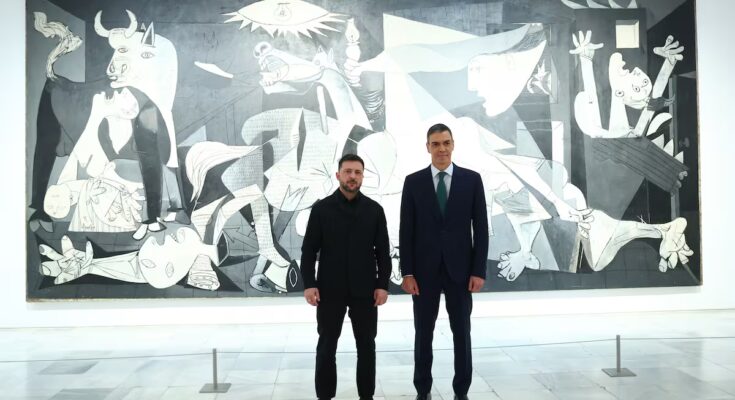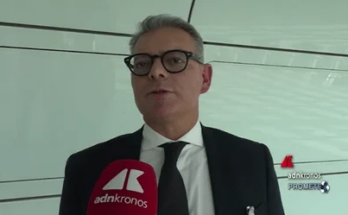Spain will finance the purchase of American weapons for Ukraine with 100 million euros, according to the agreement concluded on Tuesday in La Moncloa by presidents Pedro Sánchez and Volodímir Zelenskyj. The Spanish government thus joins the other 13 NATO partners currently participating in the PURL (Ukraine Priority Requirements List) program, launched in August after Trump’s refusal to continue providing free weapons to Kiev. The Spanish contribution will be part of an order of 300 million that the Alliance will coordinate through this program. With this arms purchase, Spain’s military commitment for the defense of Ukraine agreed on Tuesday amounts to 615 million euros.
Ukraine is preparing to endure its fourth winter since the invasion, a harsh period that could be crucial to its resistance. The heroic performance of its Armed Forces since February 2022 and the fortitude of its population have limited the advance of Russian troops, who have failed to penetrate decisively towards the west. Russia has intensified its air offensive with a continuous launch of drones and projectiles with the dual objective of devastating energy infrastructure and demoralizing the population. Ukraine has already lost 70% of its electricity generation capacity due to continuous bombing. Kiev desperately needs advanced air defense systems, and after Donald Trump’s abdication as an ally, the only quick way for Europe to take control of them is to buy them from the United States.
Zelensky thanked the solid support of the Spanish government and people, which he had already confirmed in his previous official visit, in May 2024, when another agreement was signed according to which Spain will supply weapons to Ukraine for 1,000 million per year, at least for the last year and the current one. This is an unprecedented amount of military aid to any country. The commitment is completed with humanitarian support or for the reconstruction and reception of over 250,000 Ukrainian refugees.
Beyond the concrete fruit of military support, the importance of the agreement is that it sends the same message that all EU and NATO partners must make clear when the United States is no longer a reliable ally: Ukraine will not be left alone while the Russian attack continues and will receive support as long as it is needed. Defending – with international politics and economic sanctions, but also with weapons – the sovereignty and freedom of Ukrainians against Putin means defending freedom and democracy in Europe. This challenge will largely determine the future of the EU and, therefore, Spain. For this reason, an in-depth debate on foreign and security policy continues to be imperative, the venue for which can only be Congress. On few issues is it more necessary to build consensus than the state.



